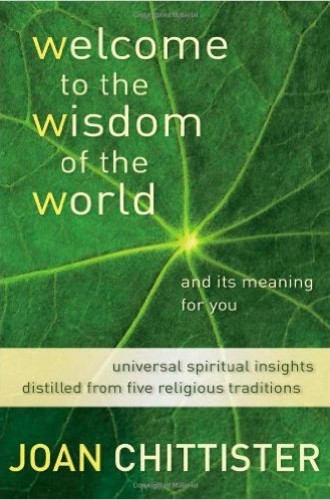Welcome to the Wisdom of the World and Its Meaning for You, by Joan Chittister
Joseph Campbell, the great scholar of mythology, once said that we should read other people’s stories because when we read our own, we assume they are factual, but when we read the myths of others, we begin to understand symbolism, and our imaginations transport us into realms of deeper meaning. I have found no better book for shifting one’s view from facts to symbols than Joan Chittister’s Welcome to the Wisdom of the World and Its Meaning for You. A mixture of narrative and keen reflections, the book calls forth the power of story, whether the tale is that of a Sufi dervish on pilgrimage who points out that Allah is everywhere, or that of a Hindu disciple who is noticed only because of his memorable sacrifice.
The myths are easy to read aloud in class. They are short, mostly unfamiliar, and often a little strange—just the perfect combination to get students interested. After reading a myth, I ask students to talk about what it means. They soon discover important keys to reading religious texts: there are multiple meanings; symbolism is expansive rather than constricting; and working in community awakens more insight than working alone. In my courses—especially those with international students, including people from Nepal and Saudi Arabia—the narratives that pepper Chittister’s book propel us beyond barriers of language, culture, and experience.





